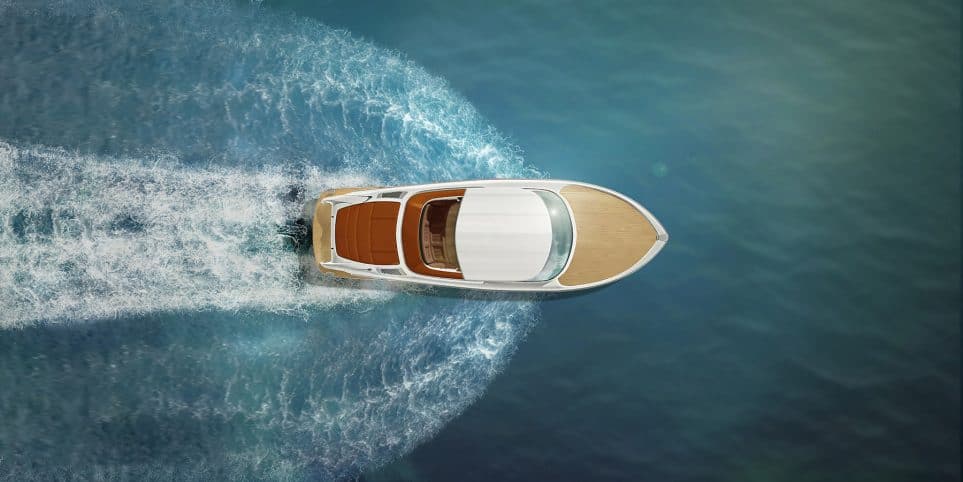There’s something so attractive and serene about being on the water. The flapping of the waves against the boat and the way the sun hits the water can calm one’s anxieties differently than when on land. Whether you plan to own or rent a boat, there are certain things you need to know to get started in the world of boating.
Boat Safety
No matter how much boating knowledge and experience you’ve got, it is always a good idea for anyone who wants to spend time out on the lake or sea to familiarize himself with boating safety regulations and rules.
One of the best ways to learn all the rules and safety precautions is through an online boating safety course. Websites like ilearntoboat.com offer safety courses for first-time boaters who want to operate a watercraft. This is necessary because most states in the US now require people to take approved courses relating to boat safety before allowing them to drive a powerboat and it is the same in Europe. There are some places where really small boats with really low power engines do not require a course or a license, but even in this case I would highly recommend you get one.
You can learn from home through your computer or even your mobile phone. You can take this course and have fun at the same time because it teaches you through real-life scenarios in a gaming approach that keeps your attention. If you don’t think an online course is right for you, or if you are just looking for more information on hot to start your boating “career” here are a few basic tips and info that every boating beginner needs to know:
- Proper Life-Saving Gear: You will need life jackets for yourself and every passenger in your boat, no matter what kind of swimmer they are. Even expert swimmers can get caught in currents and something happens far away from the shore you will want to conserve energy when you are in the water. A life jacket is always essential. Also, if you are on a slightly bigger boat get a life sling or dinghy for emergencies. You can check Universal Safety to know more about the importance of these equipment.
- Horn and/or Warning Device: No one plans to be in trouble, but it makes good sense to have a way to signal other boaters or authorities if you are in trouble. Horns, megaphones, and flares are good options for warning devices.
- A Good Anchor and Rode: You are going to make certain that your boat is prepared to stop and stay in a place where you wish to. An anchor and rode can keep your boat still in its position despite the force of the waves, wind and currents. You will also have to learn what is a good anchoring spot and what places it is better to avoid.
- A GPS Device: You will need to know where you are and where the shore is.
- Fire Extinguishers: It’s best to purchase a fire extinguisher and keep it on the boat all the time, changing it every year. In addition, you might look at getting everyone in your family trained to learn how to use a fire extinguisher.
- A VHF Radio: You will need to make certain you know how to transmit a Mayday and use appropriate Channels. It would also be good to have a phone number for local authorities.
- A Sturdy Nylon Line: You will need a length suitable for towing in case you need it.
- A First Aid Kit: Pack bandages, alcohol for swimmers’ ears, plenty of sunscreens, and seasickness medication.
- Miscellaneous: Any equipment for fishing or water recreation.
Final Tips On Using The Boat
You may plan to do some fishing or relaxation on the water. Or, you might be into some water recreational activities like skiing. In recent years, wakeboarding has become extremely popular as well. Lots of people also have a stand up paddle board on their boat so they can reach the shore without getting wet or just paddle around for fun. Some waterproof bags and backpacks are also really useful.
When you purchase or lease a boat, you’ll want to be sure that it meets the standards of boating safety and that the vessel is safe for you to drive. You will also need to make sure that not only the boat but also all the equipment on board is in good working order. This includes making sure that your steering wheel and the rudder are securely attached. Emergency lights should always be operational, fire extinguisher should be replaced regularly etc… If you are not an expert it is sometimes hard to know in what condition the boat is in, but generally the boat should look like it is in good shape overall.
Maybe the most important thing is that the boat’s hull is intact. This means that if there’s any type of damage to the boat, you should fix it as soon as possible. Fixing the hull is not that expensive but when left unfixed it can lead to a lot more serious and costly damage.
And finally, look for a good storage solution for times when the boat is not in use, especially over winter. This way the boat will stay in good condition even when you are not using it.
